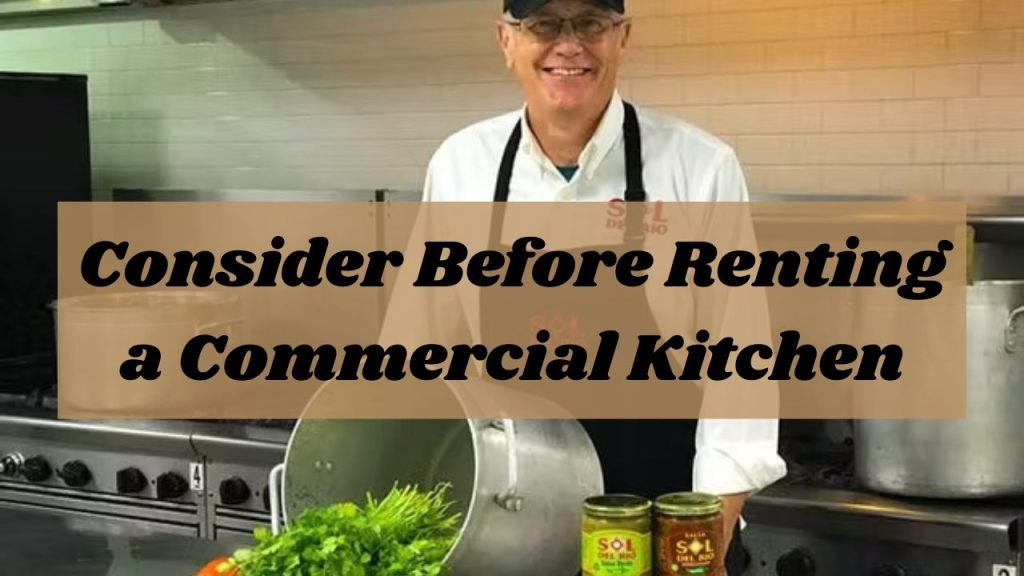Before you decide where to rent a commercial kitchen, there are three important things to consider. First of all, it’s important for your business’s needs that you don’t hire a space that is too small or too large. Second, make sure the space can accommodate all your equipment and employees. And lastly, work out how much it will cost to rent and use the space for the number of hours you need.
What Are the Important Things Before Renting a Commercial Kitchen?
When looking to rent a shared commissary kitchen, there are a few important things to consider. The first is the size and layout of the kitchen. Make sure you can fit all of the equipment you need within the space. Next, think about what type of kitchen you need. Do you need a full kitchen with all the bells and whistles, or something closer to a prep area? Finally, be sure to consider your budget. There are a lot of great kitchens out there that won’t break the bank, but there are also some that are more expensive. It’s important to find one that will fit your needs and budget.
Why Should You Consider a Meal Prep Kitchen?
The popularity of home cooking has led to an increase in the number of people renting commercial kitchens. But what are the benefits and drawbacks of doing so?
There are a few things to consider before renting a commercial kitchen. First, make sure you have the space available. Most kitchens are small and require at least 800 square feet. Second, think about your needs. Will you be using the kitchen mostly for cooking or baking? Do you need a large workspace or do you want to be able to walk around it? Finally, consider the cost. Commercial kitchens can be expensive, but that doesn’t mean they’re out of reach for everyone. There are plenty of options available with varying prices and features.
When Renting a Commercial Kitchen, There Are a Few Things to Consider.
First, the size of the kitchen will determine how many employees it can accommodate. Second, the type of kitchen equipment that is available will determine what kind of cooking you can do. Lastly, the cost of rent will be based on the size and type of kitchen.
Things to Look for in a Commercial Kitchen
When looking for a commercial kitchen, there are a few things to keep in mind. Some of the factors to consider include:
- The size of the kitchen – A large kitchen may be necessary if you have a lot of employees or customers, while a small kitchen may be better if you only have a few employees or customers.
- The type of cooking that will be done – A commercial kitchen is usually designed for baking, frying, and cooking meat.
- The price – The price of the kitchen will vary depending on the features and size of the kitchen.
How Can You Find a Good Supplier?
When looking to rent a commercial kitchen, it’s important to consider a few key factors. Here are three of the most important:
Size and capacity
A kitchen should be big enough for your needs, but not too big or too small. It’s also important to think about how many people will be using the kitchen at any given time – if it’s only for one person, a smaller kitchen might be better.
Location
Ideally, you’ll want the kitchen located near your customer base. If you have a lot of out-of-town customers, for example, locating the kitchen near your shipping docks can make life a lot easier.
Amenities and Equipment
You’ll also want to factor in the amenities and equipment available in the kitchen. Does it come with an oven, stovetop, microwave, and refrigerator/freezer? What kind of appliances do you need (like mixers or blenders)? Is there prep space available (a sink or counter)
Conclusion
Before you sign a lease for a commercial kitchen, there are a few things you should consider. Here are three of the most important:
- The space you’re considering renting should have the necessary equipment and features to operate your kitchen as required by your business.
- You should have an idea of what type of food you will be cooking and whether that includes any special dietary restrictions that need to be addressed in your lease agreement.
- Be sure to negotiate an appropriate price for monthly rent, as well as other fees associated with operating the kitchen such as utilities and insurance.
